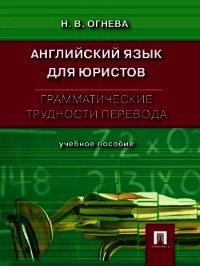Английский язык: самоучитель - Шевчук Денис Александрович (лучшие книги онлайн txt) 📗
7. Я могу пойти в аптеку и купить бутылку лекарства для нее.
8. Я бы хотел прослушать эти записи сейчас. Ты можешь принести мне чашку чая?
9. Find the odd word out.
Найдите лишнее слово.
1. baker’s, post office, batteries, greengrocer’s;
2. clothes, strawberries, sportswear, boots;
3. chicken, beef, bread, meat;
4. bananas, tomatoes, grapes, eggs;
5. bottle, glass, cup, coffee;
6. marmalade, soup, toasts, yogurt.
10. Answer the questions.
Ответьте на вопросы.
1. What do you usually buy at the baker’s?
2. What clothes do you usually buy at the supermarket?
3. Where do you buy food and why?
4. When you relax in the bar, what do you usually drink?
5. Who can you give a bunch of flowers?
6. Where can you buy medicines?
7. What food do you usually buy when you go out?
8. Do you prefer to buy food in the shop or at the market?
9. Do you like to go shopping in your spare time? What do you like to buy?10. What don’t you like to buy and why?
Language focus 2
Prepositions of time
Предлоги времени
At five o’clock am/pm – В пять часов утра/вечера
From five to seven o’clock – С пяти до семи
At half past two – В половине третьего (в половине после двух)
At (a) quarter past seven – В пятнадцать минут восьмого
At (a) quarter to seven – В без четверти семь
At midday – В полдень
At midnight – В полночь
On weekdays – По рабочим дням
At the weekend – По выходным
On Monday / Tuesday / Wednesday / Thursday / Friday / Saturday / Sunday – В понедельник / вторник/ среду/ четверг / пятницу / субботу / воскресенье
In my spare time – В мое свободное время
On holidays – В каникулы
11. Write General or Special Questions.
Напишите Общие или Специальные вопросы.
1. I improve my English at the weekend.
2. He works at the baker’s from seven am to six pm.
3. In my spare time I buy sportswear.
4. On holidays I keep an eye on my daughter and two sons.
5. On Thursday the whole country has a holiday.
6. She sells textiles on weekdays.
7. At half past one we have a coffee break.
8. Our generation doesn’t wake up at five am.
9. At the weekend we have entertainment in a jazz club.
12. Complete the gaps with a suitable preposition
Вставьте пропущенные предлоги.
At, from, to, on, on, at, on, in, at, at.
1. My son and daughter often do to the gym............the weekend.
2...........Saturday my wife and I ride bicycles to improve health.
3. We do athletics...............five..............eight.
4. They would like to study in a residential college...............holidays.
5. This artist doesn’t paint.............. midnight.
6. We seldom go to the cafй.............weekdays.
7. I’d like to come to the learning centre...........half past ten.
8. She goes to the wholesale market............ midday.
9. They never use a computer.............their spare time.
13. Complete the sentences.
Дополните предложения.
On weekdays....................................................................................................
In her spare time................................................................................................
On Monday......................................................................................................
At the weekend.................................................................................................
At midday.......................................................................................................
From six to nine...............................................................................................
At quarter to ten................................................................................................
FOCUS ON GRAMMAR
Активная грамматика
Language focus 1
Possessive Case
Притяжательный падеж имен существительных
Притяжательный падеж выражает принадлежность и соответствует в русском языке родительному падежу. В форме притяжательного падежа употребляются, главным образом, имена существительные, обозначающие одушевленные предметы.
Притяжательный падеж существительных в единственном числе образуется прибавлением апострофа и буквы s к форме существительного.
David’s sister – сестра Дэвида
My daughter's friends – друзья моей дочери
Если существительное заканчивается на s, то чаще всего в притяжательном падеже после апострофа s уже не используется. Например:
James’ sister – сестра Джемса
Притяжательный падеж существительных во множественном числе образуется прибавлением апострофа к форме существительного.
Students’ flats
My friends’ car
Если существительное не заканчивается на s (см. особые случаи образования множественного числа имен существительных), то в притяжательном падеже после апострофа стоит s. Например:
My children’s toys
The women’s husbands

1. Write who they belong to.
Напишите, кому они принадлежат.
Example:
My father, newspaper – my father’s newspaper
my wife, cat .....................................................................
children, this woman .....................................................................
the students, address .....................................................................
textiles, that company .....................................................................
this generation, customs .....................................................................
entertainment, James .....................................................................
club, those women .....................................................................
exhibitions, those photographers .....................................................................
Mr. Sames, lifestyle .....................................................................
my parents, health .....................................................................
2. Answer the questions.
Ответьте на вопросы.
1. What is your father’s business?
2. What is your children’s entertainment?
3. What is your wife’s/husband’s name?
4. Which is your wife’s favourite supermarket?
5. Would you like to see your friends’ new car?
6. What is your dog’s/cat’s name?
7. Where is your parents’ house?
8. What is your family’s hobby?
3. You show your Family Photo Album to your friends. Translate what you say.
Вы показываете своим друзьям фото альбом своей семьи. Переведите свой рассказ.
Это моя семья. Бизнес нашей семьи – импорт текстильной продукции из Индии. Друг моего отца живет в Индии. Вы можете увидеть моего отца и индийских друзей моего отца на этой фотографии. Традиции их поколения очень странные. Любимое развлечение индийских семей – рисунки (pictures) зерновыми культурами перед домом. Посмотрите на рисунки этих детей. Они необычные, не так ли?
Хобби моей мамы – катание (riding) на велосипеде. Велосипеды моих родителей очень старые, и муж моей сестры хочет подарить им новые (the new ones).
4. Make up 5 questions to each of the sentences (one question of each type).
Составьте по пять вопросов к каждому предложению (по одному вопросу каждого типа).




